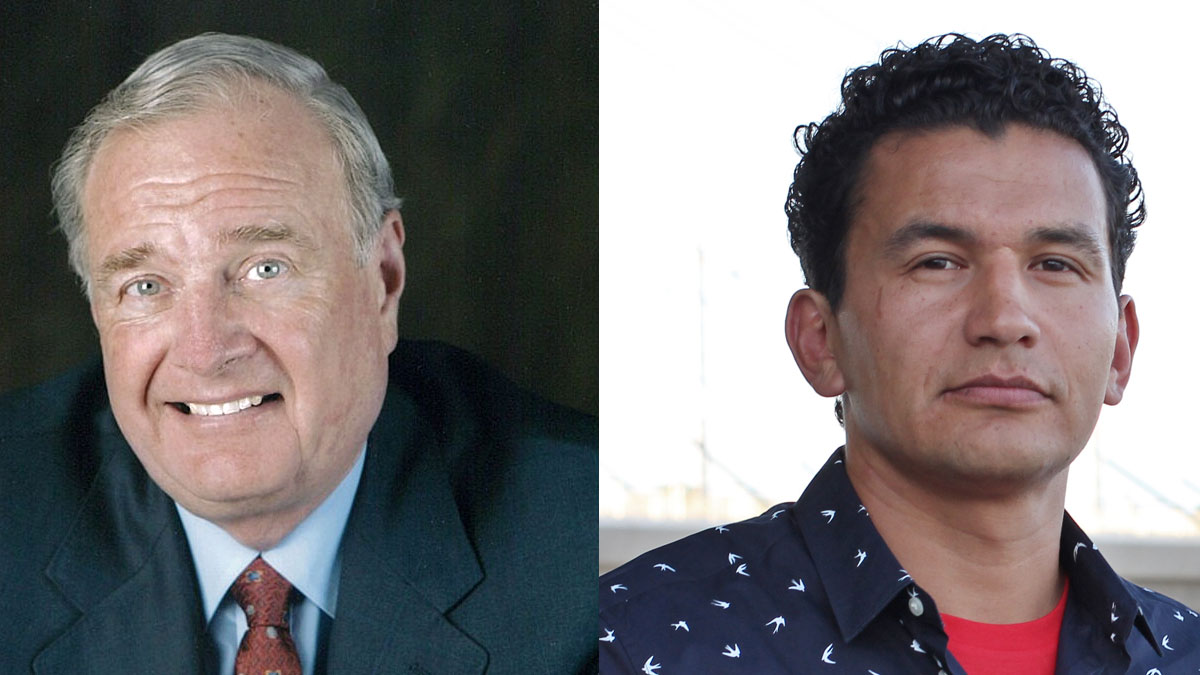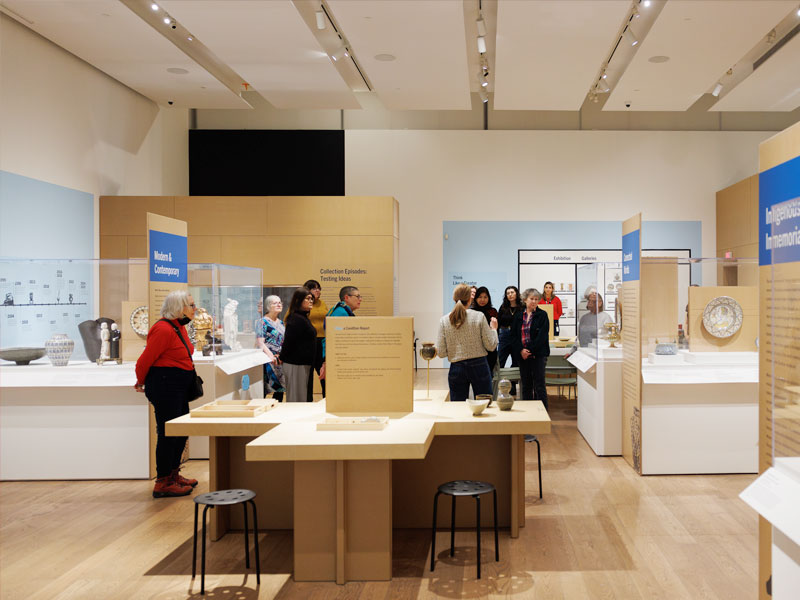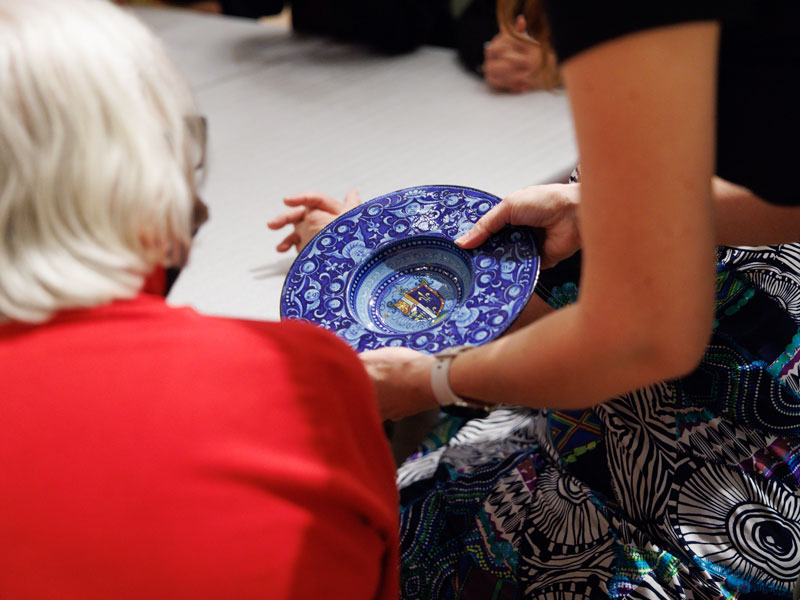Canada Recast: First and Next Canadians with Paul Martin and Wab Kinew
The Gardiner Museum brings together people of all ages and backgrounds through the shared values of creativity, wonder, and community that clay and ceramic traditions inspire.

- This event has passed.
Canada Recast: First and Next Canadians with Paul Martin and Wab Kinew
March 27, 2017 @ 6:30 pm - 8:00 pm

Special Exhibition Program
What is our country made of? As Canada marks the 150th anniversary of Confederation, Globe and Mail columnist Doug Saunders hosts a series of onstage conversations with pairings of uniquely situated guests who will look at the country from inside and outside, from past and future, with raised eyebrows and raised fists.
March 15: Satirical Lenses
March 27: First and Next Canadians
May 3: Alternative Futures
Indigenous Canadians are the country’s fastest-growing and most youthful population. Their very different experience of Canadian history, and their future potential will be explored by this pairing of veteran and next-generation Canadian leaders.
Paul Martin was the twenty-first Prime Minister of Canada and works with the Martin Family Initiative, established to identify issues impacting Aboriginals Canadians. Wab Kinew is a member of the Manitoba Legislative Assembly and of the Onigaming First Nation, a broadcaster, and rap musician.
Canada Recast is presented alongside the special exhibition Janet Macpherson: A Canadian Bestiary, a highly inventive and visually stunning take on Canadian history and identity from the perspective of one of the country’s most exciting young artists. Together, the exhibition and talk series highlight the diversity of viewpoints and experiences that make up Canada.
About Paul Martin
The Right Honourable Paul Martin was the twenty-first Prime Minister of Canada from 2003 to 2006, Minister of Finance from 1993 to 2002 and he served as the Member of Parliament for LaSalle-Émard in Montréal, Québec from 1988 to 2008. Under Mr. Martin’s leadership in November 2005, the Canadian Government reached an historic consensus with Canada’s provinces, territories, First Nations, Métis Nation, and Inuit leaders that would eliminate the gaps between Aboriginal and non-Aboriginal Canadians in the areas of health, education, housing, and economic opportunity. This agreement became known as the Kelowna Accord. Mr. Martin and his family also founded the Martin Family Initiative, established to identify issues impacting Aboriginals Canadians.
Mr. Martin graduated in honours philosophy and history from St. Michael’s College at the University of Toronto and is a graduate of the University of Toronto Faculty of Law. In December 2011, he was appointed as a Companion to the Order of Canada
About Wab Kinew
Wab Kinew is a one-of-a-kind talent, named by the National Post as “an aboriginal leader seeking to engage with Canadians at large”. He is the MLA for Fort Rouge in Manitoba and the author of the award-winning #1 national bestseller The Reason You Walk: A Memoir. Wab is a former University executive, host of the documentary series 8th Fire and successfully defended Joseph Boyden’s The Orenda on CBC’s Canada Reads literary competition. His hip-hop music and journalism projects have won numerous awards. He has a BA in Economics, is completing a Masters degree in Indigenous Governance, and is a member of the Midewin. Wab is also an Honourary Witness for the Truth and Reconciliation Commission of Canada.
About Doug Saunders
Doug Saunders is the Globe and Mail’s international-affairs columnist and an author whose work focuses on cities, migration, population, and policy. A native of Hamilton, Ontario, he has reported from more than 40 countries after serving for 15 years as the Globe’s London-based European Bureau Chief and as its Los Angeles Bureau Chief. He has won the National Newspaper Award, Canada’s counterpart to the Pulitzer Prize, on five occasions.
He is the author of Arrival City: The Final Migration and Our Next World (2010), which visits 20 cities on five continents to examine this century’s historic shift of populations from rural to urban areas, and the factors that turn immigration into a success; and The Myth of the Muslim Tide (2012), which explores the effects of, and responses to, the arrival of religious-minority immigrants. Later in 2017 he will publish Maximum Canada, a book examining Canada’s crisis of underpopulation, its history, and its solutions.
Presented by

Supported by

Media partner
![]()



